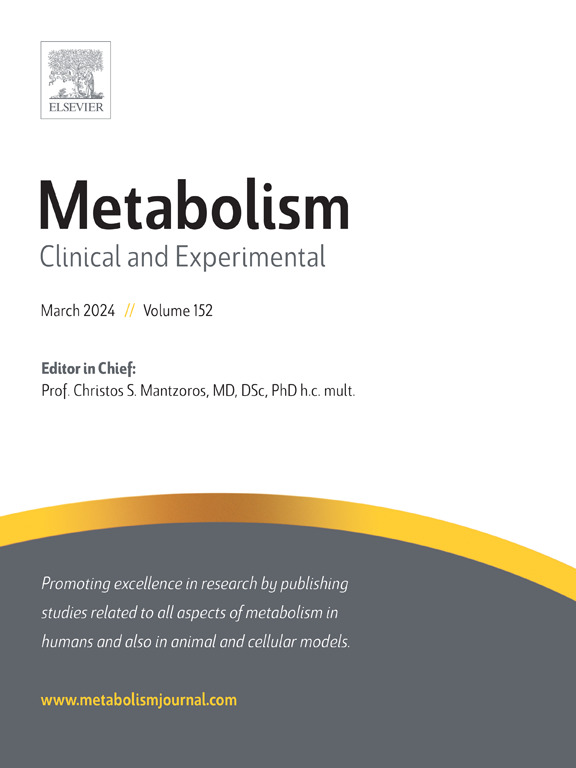Exploring the interplay of genetic variants and environmental factors in childhood obesity: A systematic review and meta-analysis
IF 11.9
1区 医学
Q1 ENDOCRINOLOGY & METABOLISM
引用次数: 0
Abstract
Dynamic interactions between genetic predispositions and environmental exposures significantly shape the escalating prevalence of childhood obesity. This systematic review synthesizes observational and clinical trial evidence on the gene-environment interplays influencing childhood obesity, highlighting the role of genetic variants and environmental moderators such as dietary habits, physical activity, sleep durations, parental behaviors, socioeconomic status, ethnicity, gender, as well as lifestyle interventions. We conducted an exhaustive search across 5 databases (Medline, PubMed, EMBASE, Web of Science, and Cochrane Library), adhering to PRISMA guidelines. We ultimately included 147 studies that investigated these interplays in diverse populations. Specifically, 83 studies focused on gene-diet interplays, 23 on gene-physical activity, 5 on sedentary behavior, 3 on screen time, 7 on sleep duration, 10 on parental behavior, 4 on socioeconomic status, 16 on gender, 8 on age, 7 on ethnicity, and 13 on the effects of lifestyle interventions. Notably, we meta-analyzed energy expenditure and macronutrient consumption, including carbohydrates, proteins, and fats, as well as the proportion of energy supplied by each nutrient between carriers and noncarriers of the FTO effect allele, revealing that carriers consumed a higher proportion of fat calories, with no other significant differences noted. This review demonstrates that genetic risk variants, particularly in FTO (e.g., rs9939609) and MC4R (e.g., rs17782313), amplify the adverse effects of obesogenic behaviors, offering insights into the intricate pathophysiology of childhood obesity and suggesting the potential for personalized interventions based on genetic profiles.

探索遗传变异和环境因素在儿童肥胖中的相互作用:一项系统回顾和荟萃分析
遗传倾向和环境暴露之间的动态相互作用显著地塑造了儿童肥胖患病率的不断上升。本系统综述综合了影响儿童肥胖的基因-环境相互作用的观察和临床试验证据,强调了遗传变异和环境调节因子的作用,如饮食习惯、身体活动、睡眠时间、父母行为、社会经济地位、种族、性别以及生活方式干预。我们在5个数据库(Medline, PubMed, EMBASE, Web of Science和Cochrane Library)中进行了详尽的搜索,遵循PRISMA指南。我们最终纳入了147项研究,这些研究在不同人群中调查了这些相互作用。具体来说,83项研究关注基因-饮食的相互作用,23项研究关注基因-身体活动,5项研究关注久坐行为,3项研究关注屏幕时间,7项研究关注睡眠时间,10项研究关注父母行为,4项研究关注社会经济地位,16项研究关注性别,8项研究关注年龄,7项研究关注种族,13项研究关注生活方式干预的影响。值得注意的是,我们荟萃分析了能量消耗和常量营养素消耗,包括碳水化合物、蛋白质和脂肪,以及FTO效应等位基因携带者和非携带者之间每种营养素提供的能量比例,结果显示携带者消耗的脂肪卡路里比例更高,其他方面没有显著差异。这篇综述表明,遗传风险变异,特别是FTO(如rs9939609)和MC4R(如rs17782313),放大了肥胖行为的不良影响,为儿童肥胖的复杂病理生理学提供了见解,并提出了基于遗传谱的个性化干预的潜力。
本文章由计算机程序翻译,如有差异,请以英文原文为准。
求助全文
约1分钟内获得全文
求助全文
来源期刊

Metabolism: clinical and experimental
医学-内分泌学与代谢
CiteScore
18.90
自引率
3.10%
发文量
310
审稿时长
16 days
期刊介绍:
Metabolism upholds research excellence by disseminating high-quality original research, reviews, editorials, and commentaries covering all facets of human metabolism.
Consideration for publication in Metabolism extends to studies in humans, animal, and cellular models, with a particular emphasis on work demonstrating strong translational potential.
The journal addresses a range of topics, including:
- Energy Expenditure and Obesity
- Metabolic Syndrome, Prediabetes, and Diabetes
- Nutrition, Exercise, and the Environment
- Genetics and Genomics, Proteomics, and Metabolomics
- Carbohydrate, Lipid, and Protein Metabolism
- Endocrinology and Hypertension
- Mineral and Bone Metabolism
- Cardiovascular Diseases and Malignancies
- Inflammation in metabolism and immunometabolism
 求助内容:
求助内容: 应助结果提醒方式:
应助结果提醒方式:


